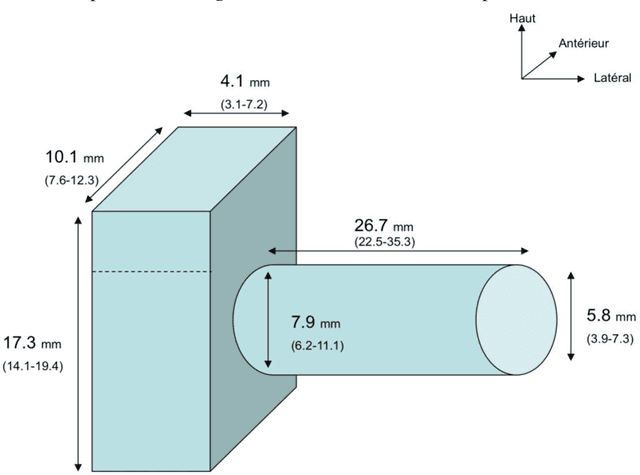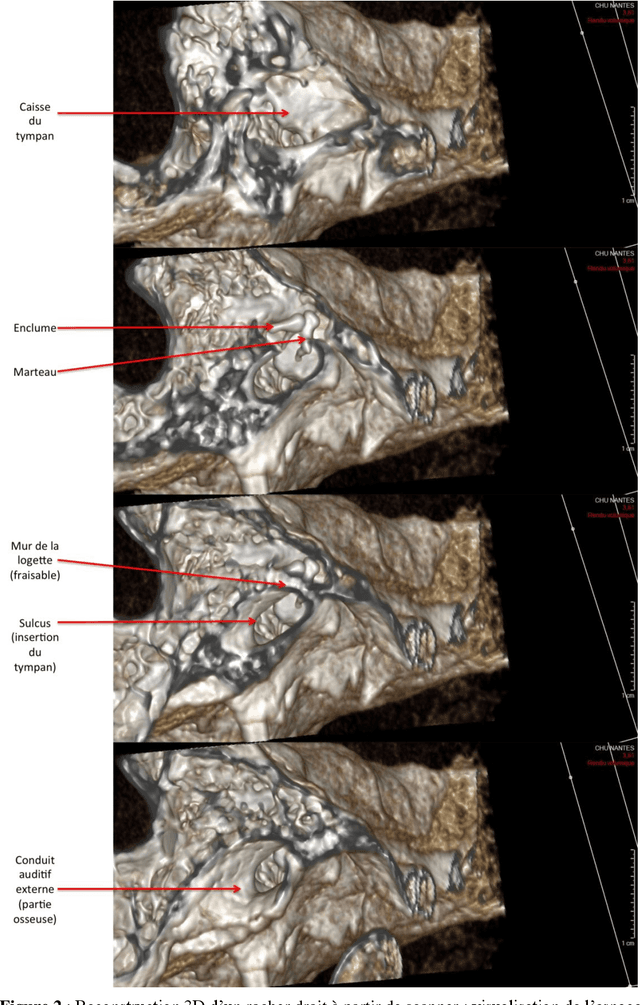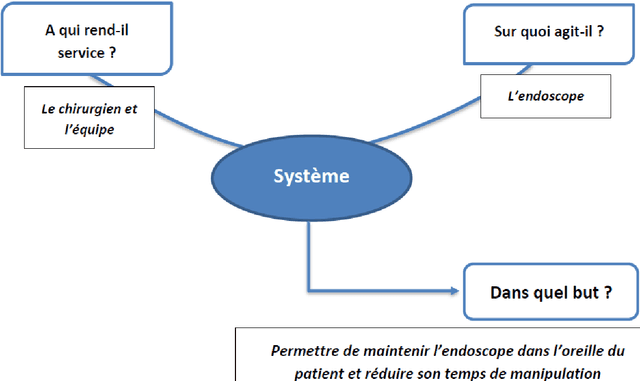F Péchereau
ECN
Analyse du besoin en assistance robotique dans la chirurgie de l'oreille
Aug 07, 2019


Abstract:Otologic surgery has some specificities compared to others surgeries. The anatomic working space is small, with various anatomical structures to preserve, like ossicles or facial nerve. This requires the use of microscope or endoscope. The microscope let the surgeon use both hands, but allows only direct vision. The endoscope leaves only one hand to the surgeon to use his tools, but provides a "fish-eye" vision. The rise of endoscopy these past few years has led to the development of numerous devices for the surgeon: the Robotol, first otological robot designed to performed some movements and hold an endoscope, or the Endofix Exo. Both devices need the hand of the surgeon to be moved. No robotic device allows the endoscope to be directed autonomously while the surgeon keeps both hands free to work, just like when he is working with a microscope. The objective of our work is to define the specific needs of the otological assistance surgery.
* in French
 Add to Chrome
Add to Chrome Add to Firefox
Add to Firefox Add to Edge
Add to Edge